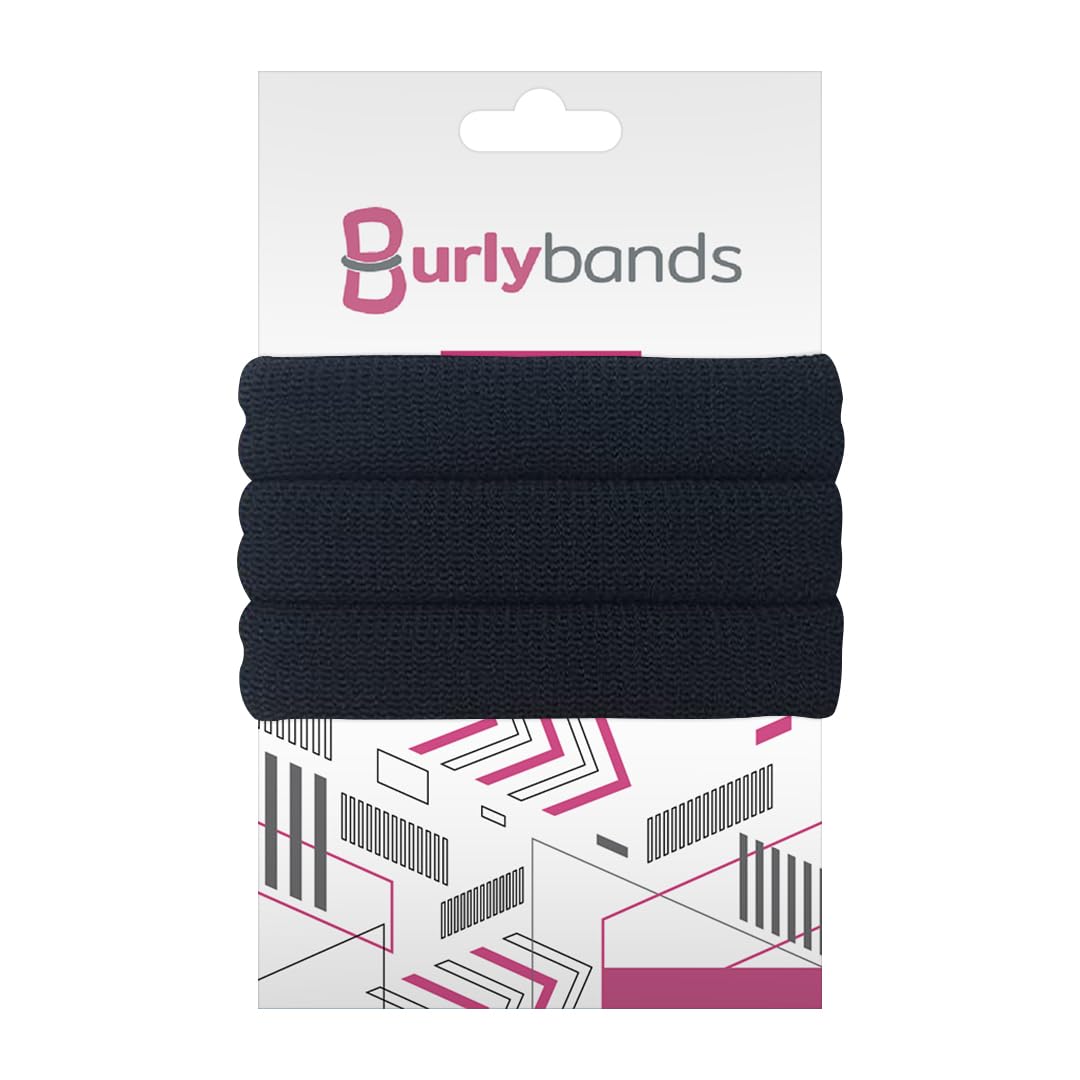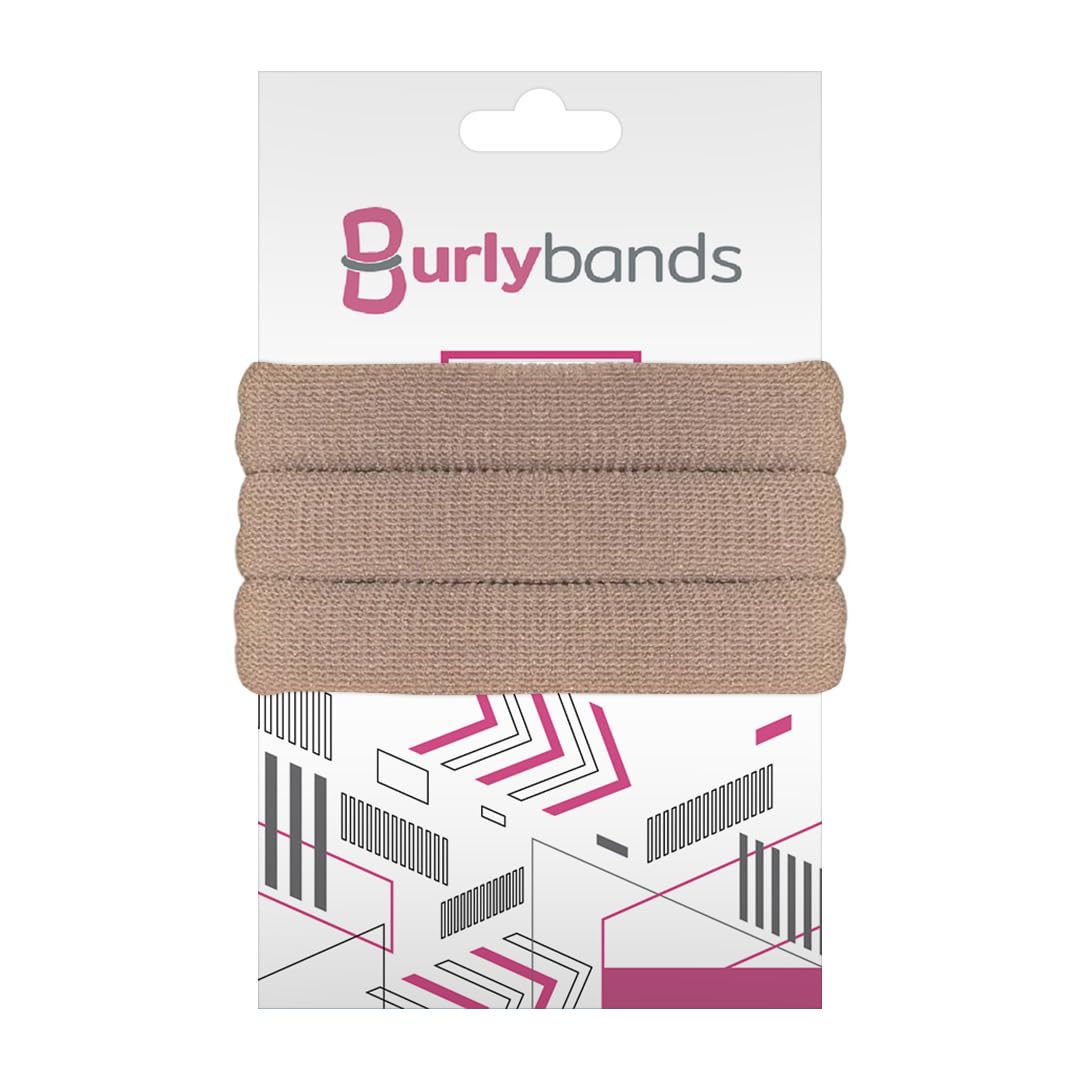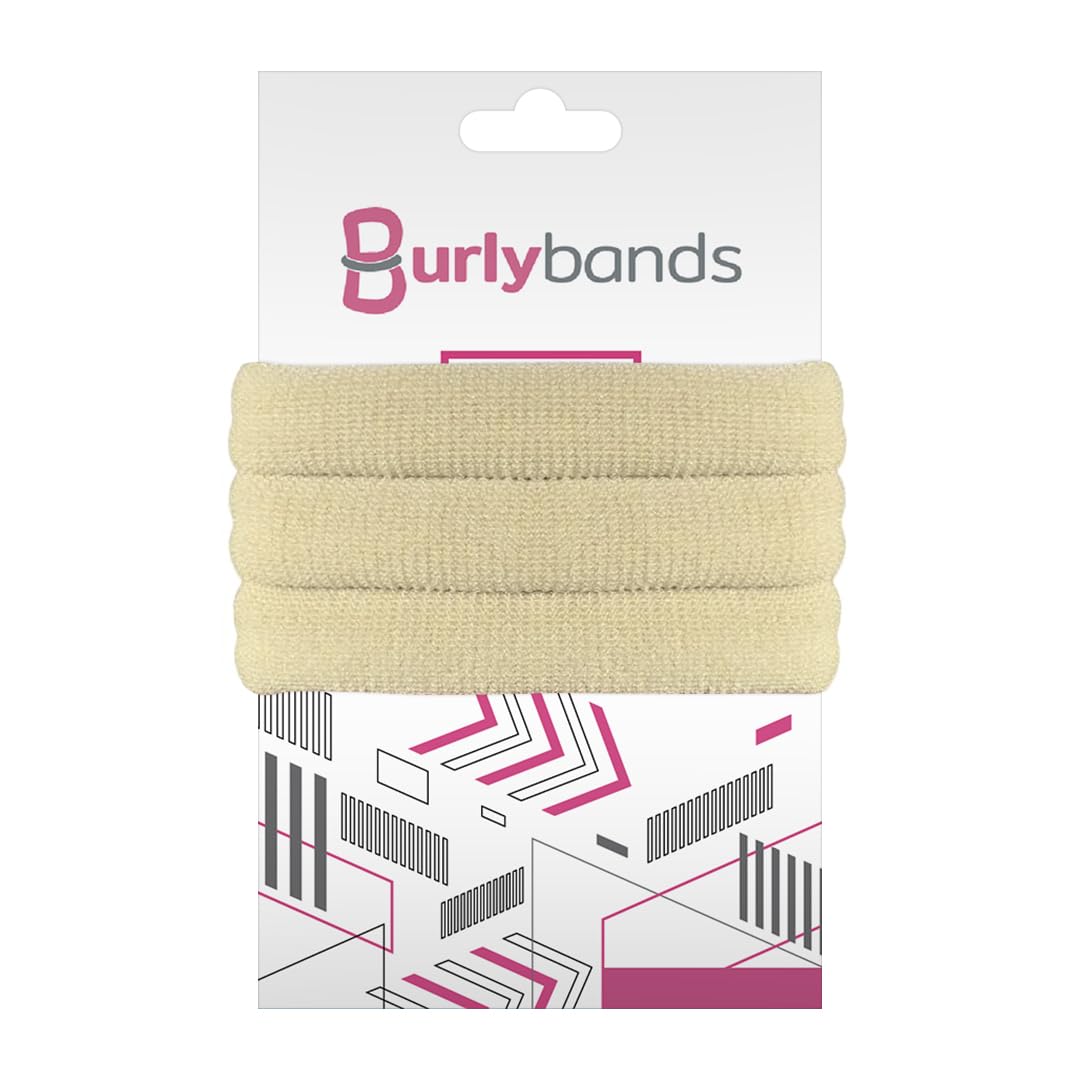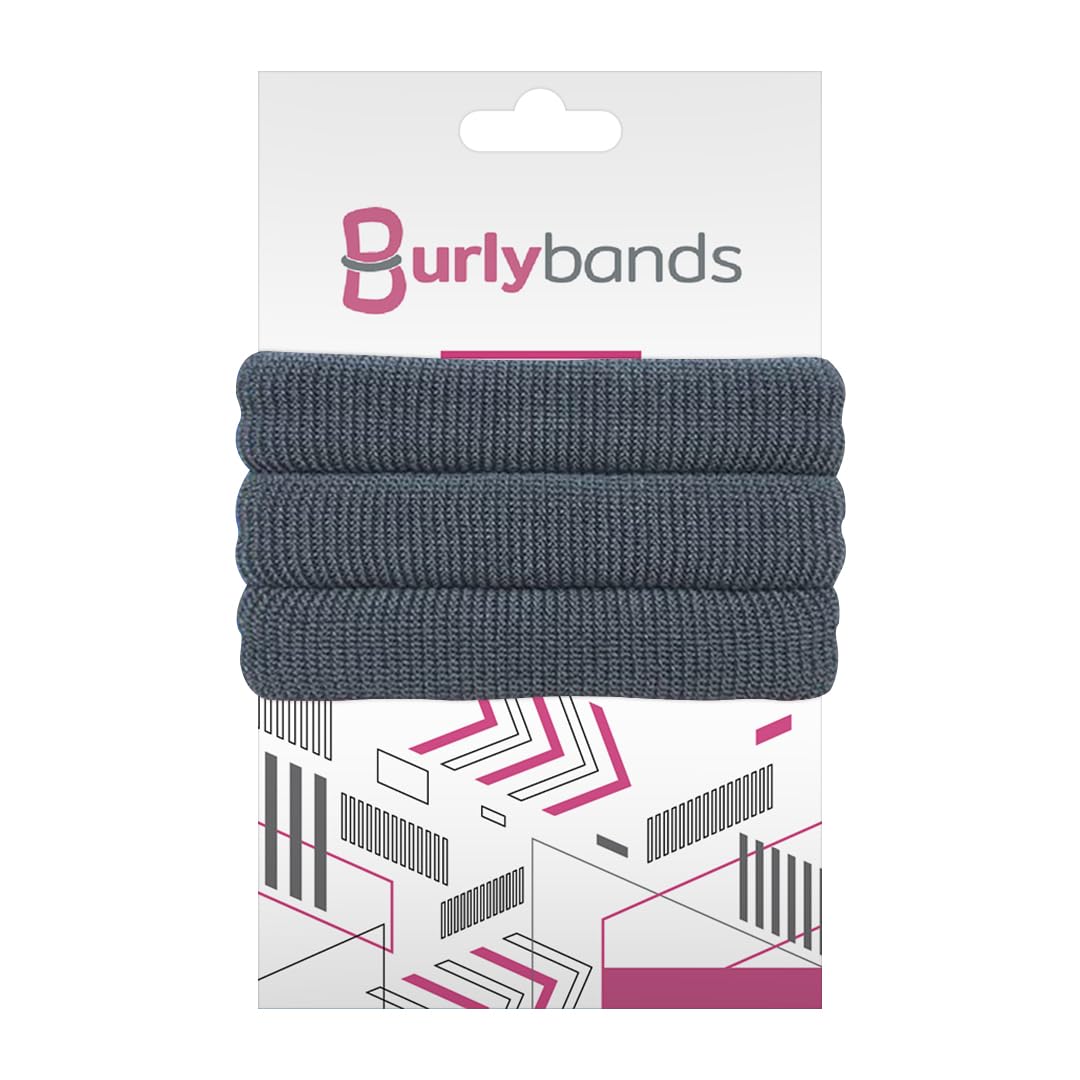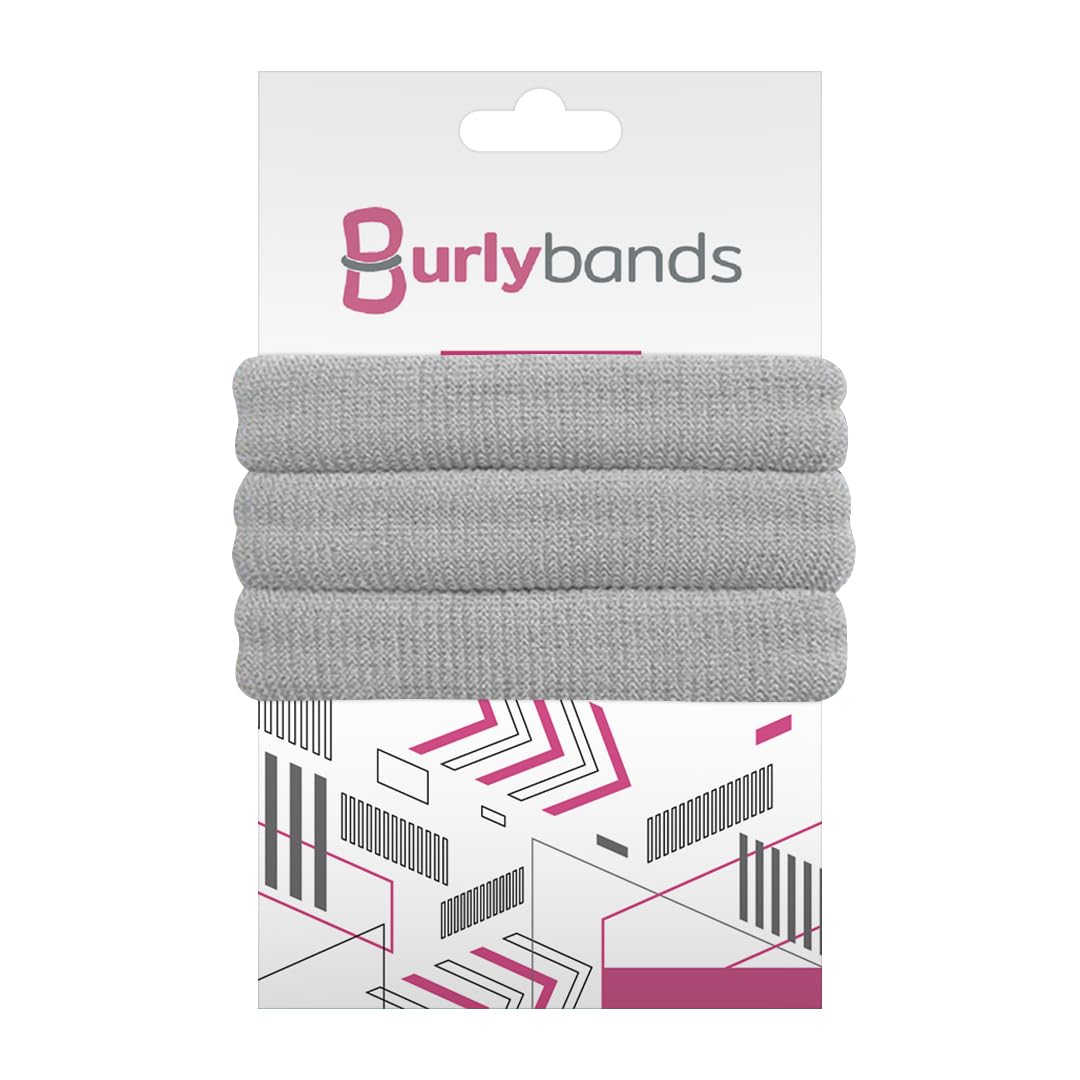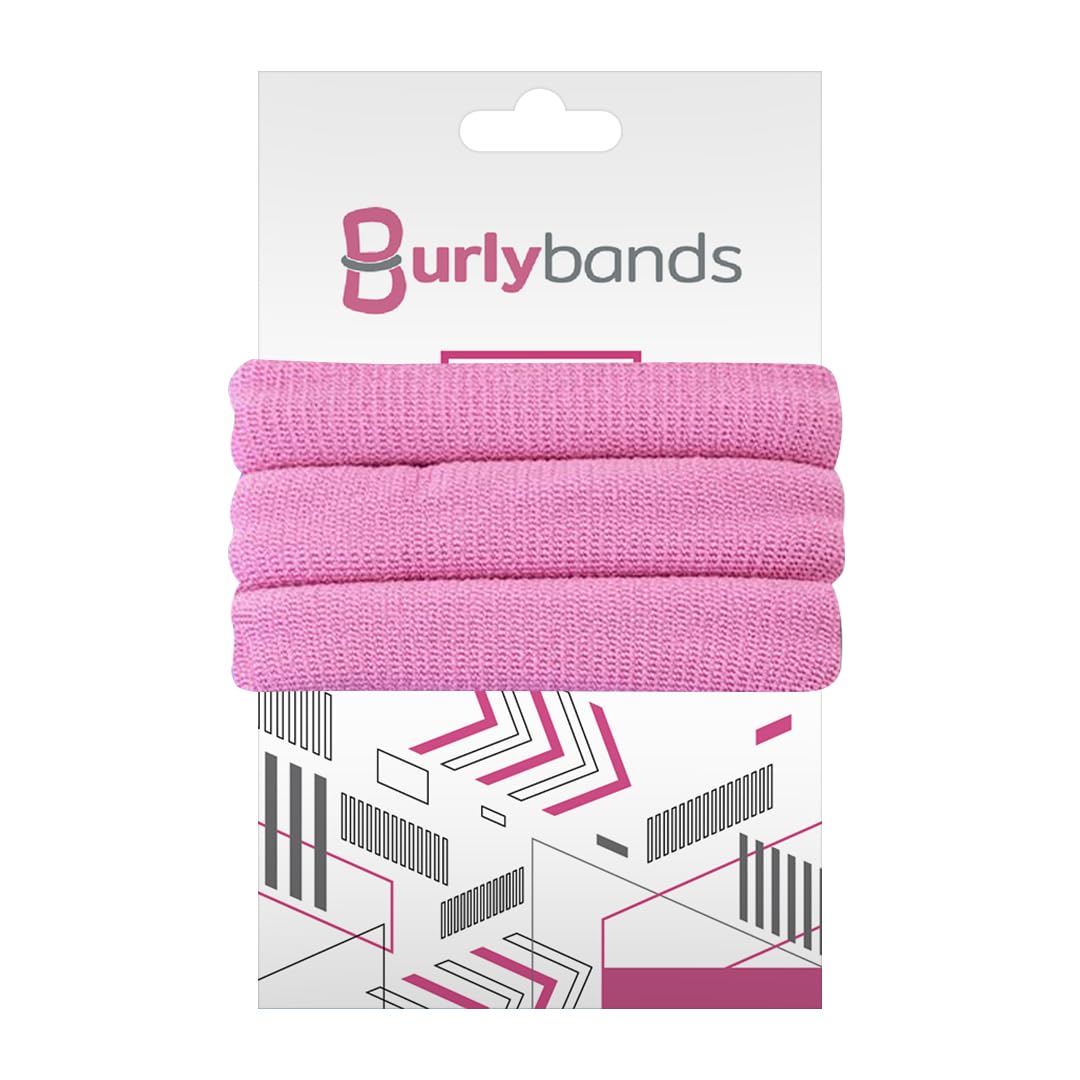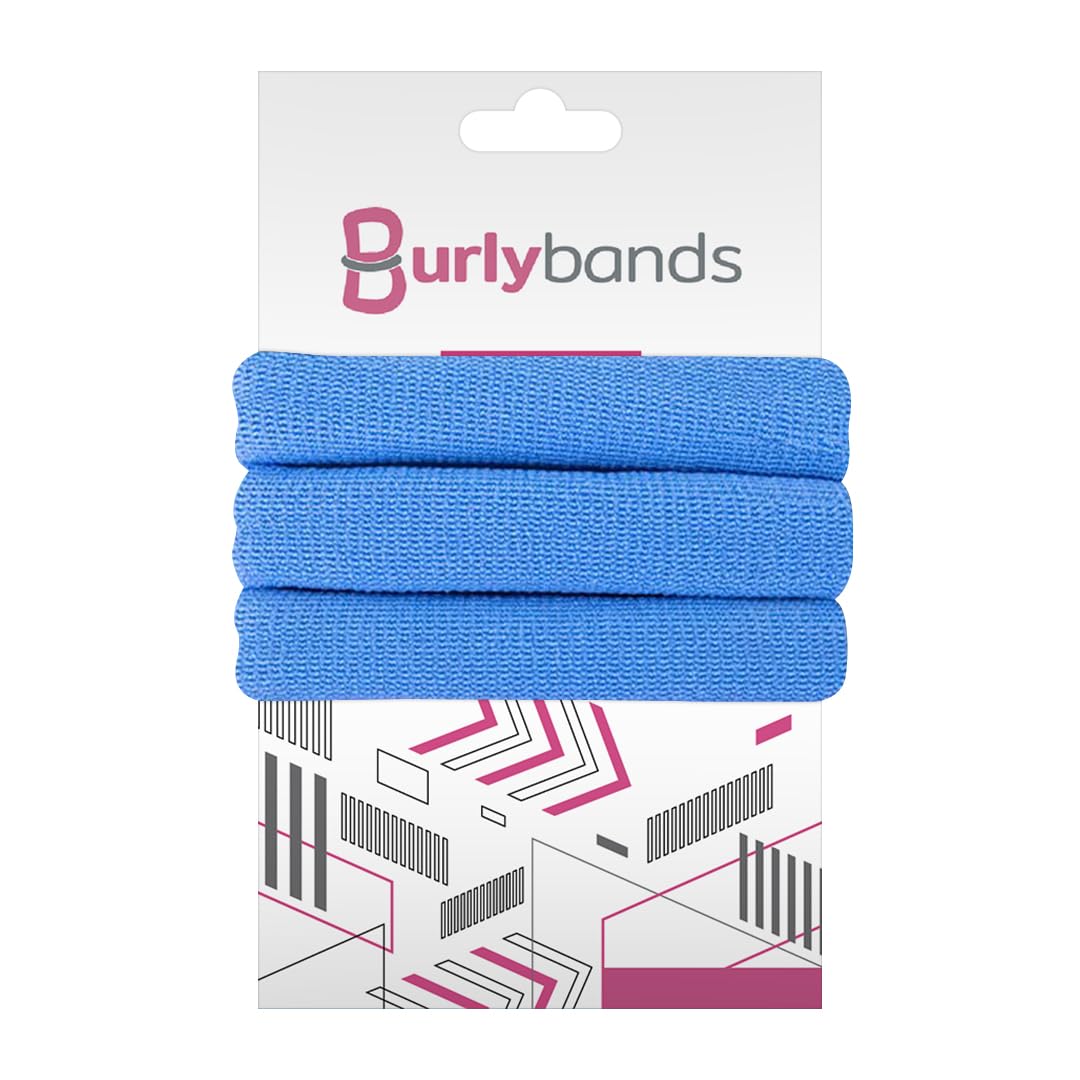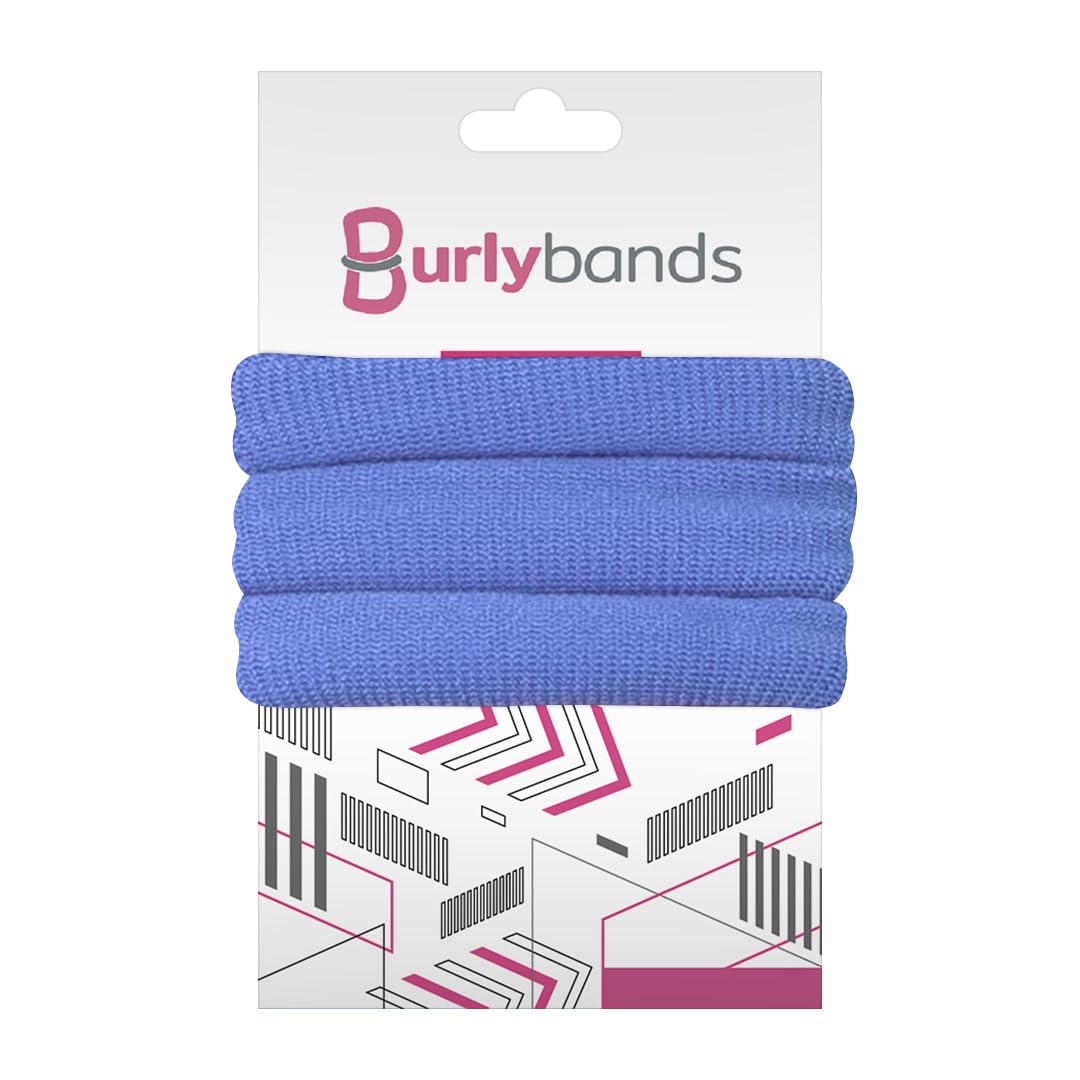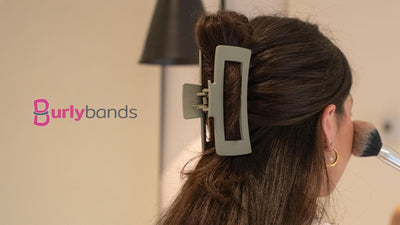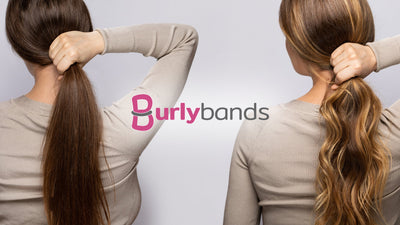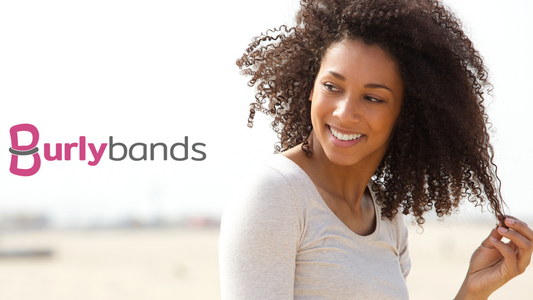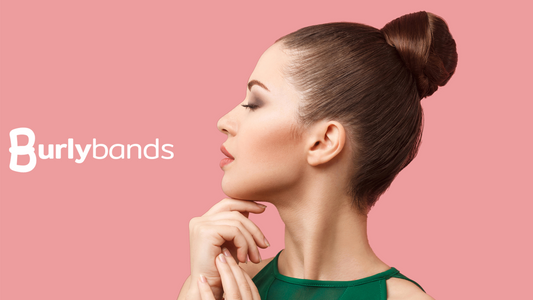Let's face it. All of us want that sleek, long, lustrous Rapunzel type of hair. You've certainly heard about the benefits of hair oiling for hair health, but you've been hesitant to try it out for fear of ending up with a greasy mane. This article will explain why oiling your hair is the solution to all of your hair problems and why you should try it. Good hair day every day? Count Burlybands in.
What Is Hair Oiling?

Credit: Envato Elements/ elenavolf
Let's take a look at what hair oiling is and where it came from before we get into the advantages. The therapy, which is usually done before a shower or before going to bed, involves massaging natural oils into the scalp and hair for moisture and nourishment.
Hair oiling is a traditional Ayurvedic practice that dates back over 4,000 years. It's based on Ayurveda and is used to promote a healthy scalp and hair, but it's also profoundly ingrained in South Asian culture. It's been passed down through the decades and is still popular in Indian culture for a reason: oiling your hair has a slew of advantages, especially if you're trying to grow it out.
How to Oil Your Hair

Credit: Envato Elements/ anatoliycherkas
Massage the oil into the scalp to increase blood flow, which may aid hair growth. Applying oil to the scalp might also help to keep dandruff at bay.
To try hair oiling, follow these steps:
- Apply oil to your hair roots and massage in a circular motion with your fingertips.
- Apply the oil to your hair that has remained on your hands.
- Leave overnight or for 1-2 hours after covering with a towel or shower cap.
- Shampoo hair with your favorite shampoo and don't forget to condition.
Hair-Oiling Benefits That You Had No Idea About

Credit: Envato Elements/ kolesnikovsergii
Dry hair? Frizzy unmanageable locks? Worry not! Hair-oiling may be the remedy. Oiling your hair has been practiced for a long time, and there's probably an excellent reason for it.
1) Enjoy Silky Hair
What's the secret to those smooth, strong locks you see in Garnier commercials? Hair oiling. That's correct. Hair oiling provides your hair with a good dose of hydration that makes it look healthy and silky.
By filling up the crevices between cuticle cells, the oils can help protect your hair follicles from external harm. You may believe that simply conditioning your hair will provide you with moisturized locks. However, a hot oil hair massage before washing your hair can do wonders for your tresses. You still don't believe us? Try it out yourself.
2) Softer Curls
Curly hair dries significantly more quickly than straight hair. It gets frizzy and is difficult to maintain when it dries. Oiling your hair with almond, olive, or coconut oil on a regular basis will help reduce frizz and give you soft, bouncy curls.
3) Let it Grow
One of the key benefits of oiling hair is that it helps increase hair growth. You can also choose to massage your scalp while applying hair oil, as this is proven to promote blood circulation. Regular hair oiling with a massage technique gives adequate nourishment for your hair as well as optimal nutrient delivery to the scalp. Hair growth improves as a result of using hair oil.
4) Hair Fall Is Reduced
While showering, do you see clumps of hair clogging your drain? Hair loss is a common occurrence in many of our lives. You've tried everything from limiting your use of hot hair tools to altering your diet, but nothing has worked. However, have you tried hair-oiling? Hair-oiling has been shown to minimize hair loss. Exfoliation of the scalp, cleaning off dead skin, and feeding and regenerating fine hair are all benefits of hair oil massage. All of this helps to keep hair from falling out.
5) Live Flake Free
Do you constantly think twice about wearing black because of those pesky white flakes in your hair?
Regular hair oiling is one of the most straightforward methods for eliminating dandruff. Hair oiling is one of the most basic ways to naturally get rid of dandruff at home, and it may also be used to prevent it.
6) No More Greys!
South Asian women and men have jet black hair until they are in their 40s, probably because of the common practice of hair-oiling in their culture. Premature greying is primarily caused by a lack of scalp nutrients or a vitamin deficit. Hair oiling on a regular basis guarantees that your scalp is well-nourished, as well as receiving essential vitamins and nutrients. As a result, oiling hair on a regular basis may be the best way to avoid premature hair greying.
7) Protects Your Hair From Heat Damage
The oil produces a protective barrier for the hair shaft by coating it. When people blow-dry their hair or use other procedures on it, the hair becomes extremely brittle and fragile. Hair oiling might help to prevent your hair from this type of damage.
8) No More Frizzy Mane!
Are you constantly dumping a handful of serum into your hair due to it constantly being a frizzy mane? Oils high in Vitamin E and fatty acids, such as castor oil and olive oil, help form a physical barrier around hair cells, limiting moisture loss that can leave strands looking dull and dry.
9) Stress Buster
A long day might leave you feeling weary and stressed. Nothing, however, can't be fixed with a good old hair-oil massage. Hair oiling might help you relax and reduce your stress levels. As the massage method increases blood circulation in the scalp, you will feel peaceful and relaxed. As a result, frequent hair oiling can help to relieve stress.
10) Bye-Bye Bacterial Infections
Most hair oils have antibacterial qualities, which can help prevent serious bacterial infections induced by exposure to the weather when applied to the scalp. Residual bacteria from dead skin and hair is another source of bacterial illnesses, and hair oils can help eliminate this from your scalp.
What Is the Best Oil To Use?
Your hair goals and personal preferences will influence the hair oil you use. Different people have different preferences for hair oil. Some people may find the scent of coconut oil unpleasant and opt for different hair oils, just as not everyone enjoys the taste of dark chocolate. Before you apply hair oil to your locks, make sure you get a patch test to determine whether you're allergic to it.
Coconut Oil

Credit: Envato Elements/ AnnaStills
The most popular natural oil, especially in South Asia, is virgin coconut oil.
Lauric acid is the most important fatty acid in it. It has a high affinity for hair protein, which means it may quickly bind to it and penetrate the hair shaft. This makes it one of the most effective oils for preventing protein loss in both damaged and healthy hair.
The oil is light and may easily penetrate the hair shaft due to its low molecular weight. Coconut oil is a good choice for most hair types because it can deep condition and provide natural protection.
Sesame Seed Oil

Credit: Envato Elements/ Olena_Rudo
Sesame oil is good for damaged hair since it decreases frizz and may help prevent split ends.
Vitamin B1, calcium, copper, phosphorus, iron, manganese, and zinc are all abundant. Sesame oil also softens the hair shaft and hydrates the scalp deeply. Its antifungal and antibacterial characteristics could help prevent dandruff.
Almond Oil

Credit: Envato Elements/ AtlasComposer
Almond oil provides your hair with much-needed nourishment, making it seem shinier and feel softer. The essential fatty acids in almond oil hydrate both the scalp and the hair strands, resulting in healthy hair.
Jaborandi Hair Oil

Credit: Envato Elements/ FabrikaPhoto
When it comes to treating dandruff, jaborandi hair oil is your best bet. Jaborandi hair oil removes excess oil and sebum from the scalp, leaving your hair silky and shiny. This hair oil helps prevent dandruff and itching by removing dirt, grime, and oil from the scalp.
Moringa Oil

Credit: Envato Elements/ ndanko
Moringa oil is beneficial to dry hair. It includes oleic acid, which makes it an excellent hair moisturizer.
Moringa oil should be mixed with carrier oils such as coconut oil.
Argan Oil

Credit: Envato Elements/ Dionisvero
If you want to make your hair smoother and more manageable, this is the oil to use because it offers so many benefits. It helps to strengthen the hair and functions as a natural conditioner.
Jojoba Oil

Credit: Envato Elements/ wirestock
Vitamin C, vitamin E, and zinc are just a few of the vitamins and minerals found in jojoba that help to nourish hair. Because it thickens hair, jojoba oil is said to decrease hair loss and increase hair strength.
Peppermint Oil

Credit: Envato Elements/ yanadjana
Peppermint oil improves hair growth by promoting circulation on the scalp. This increased blood flow helps supply important nutrients to hair follicles, boosting hair growth. As a result, peppermint oil is the ideal oil for healthy hair growth.

How Often Should I Oil My Hair?
Once or twice a week, oil your hair. You can leave it on for up to two hours. When you leave the oil on your hair for too long, it might produce zits since the oil will trickle down onto your skin, and you won't get any real benefit from it.
Is It Better To Apply Oil To Wet Or Dry Hair?
Water is repelled by oil. When you apply oil to wet hair, it repels the oil and stops it from penetrating deeply. It will become ineffective as a result of this.
Water coats your hair and scalp, making it impossible for oil to move through. As a result, oil should be applied to dry hair so that it can feed the deeper layers of your scalp and hair.
Summary
Although no one likes oily hair, sticking to a good hair-oiling routine will enhance your hair's general health and promote hair growth. If you still don't like the thought of oiling your hair, try hair masks with a few drops of essential oils or light oils that won't leave your hair feeling greasy. So, what do you have to lose? Allow your lustrous hair to shine by taming your tresses and worrying less about frizzy manes.
 Log in
Log in


